You may know about or even be part of the 40 million people worldwide who suffer from rosacea. This dermatological condition that typically affects the face is a nuisance for those who suffer from it. Although no cure has been found, medicinal cannabis has great potential to control and reduce its symptoms.
Mirror, mirror on the wall, what happens to my face?
The most visible organ of the human body, and perhaps one of the most vulnerable, is our skin. Although cutaneous affections are often not very serious, their symptoms may cause much discomfort and affect the quality of life of those who suffer from them.
Because this disease only affects the face, it may have a significant impact on personal appearance. Consequently, it can create self-esteem issues as well as serious problems at the psychological, social and occupational levels if untreated.
Unfortunately, there are many people who have struggled since early adolescence against a supposed juvenile acne, hoping that the eventual arrival of maturity may let them lose sight of the hated pimples. However, they find that when they turn 30 the acne persists, which by then also causes redness on the skin.
The problem is that rosacea can be confused not only with acne, but also with many other skin problems, such as eczema or skin allergies, and as a result, it usually escapes diagnosis at its outset.
Rosacea: What is it and What are its Symptoms
Rosacea is, specifically, a chronic inflammatory dermatosis that affects mainly the central area of the facial skin. The symptoms of this common condition can vary from one person to another, and the most frequent include:
- Transient or persistent erythema (facial reddening) in the central area of the face, in parts such as the cheeks, chin, nose and forehead;
- Small dilated blood vessels (telangiectasias) may also become visible in the nose and cheeks. The redness can slowly spread, reaching even the ears, chest and back.
- In addition, small red swollen pimples and papules may appear, sometimes containing pus. The patient’s skin may likely become very sensitive and produce a burning sensation.
- In about half of the cases of rosacea, patients also experience eye problems such as dryness, irritation and swollenness and / or reddened eyelids. In some more serious cases, rosacea can even put eye health at risk. In addition, some people may develop ocular symptoms earlier than those of the skin.
- Swelling of the nose. On rare occasions, rosacea manifests as a thickening of the facial tissue of the nose, resulting in a thick, red, bulbous nose (rhinophyma).
Most cases of rosacea are clinical, which means that the patient’s condition will worsen or improve usually during a period of weeks or months. Without proper treatment and follow-up, rosacea could be a progressive illness, that only worsens with time.
Medicinal cannabis has great potential to help in the treatment of the aforementioned symptoms thanks to its anti-inflammatory and antioxidant properties beneficial to the skin, and health in general. This is demonstrated by the relevant anecdotal evidence from many patients who use it to treat rosacea.
And although there are not many studies about the use of cannabis in the treatment of this illness, there is evidence of the promising role of cannabinoids in dermatology.
An Evil that Affects Many
Rosacea is a pathology that predominates in individuals between the ages of 30 and 50 years. According to officially published data, approximately 40 million people worldwide suffer from it; in Europe, it affects between 1.5 and 10.1% of the population, and 16 million in the United States.
It is also known as “the curse of the Celts” in both Britain and Ireland, because it occurs more often in people with white or clear skin, with light hair and eyes, and with northern and eastern European ancestors. Nonetheless, it can affect people of all skin tones.
It is a little more frequent in women, with a prevalence of three women for every man, although the most serious and most complicated cases are observed in men.
Why Does My Face Become Red and Why Do I Get Pimples?
Numerous studies about the causes of rosacea have been carried out at the international level. The condition usually occurs frequently among relatives, which have led researchers to believe that it might be a hereditary illness, without discarding, of course, the role that environmental factors may play. It is also believed that a malfunction of the innate immune system, which is “the body’s first line of defense against infection”, may be responsible for the inflammatory response.
Although, for the moment, the exact causes of rosacea are unknown, what seems clear so far is that it has to do with alterations in the vascular structure (dilation of blood vessels) and with changes in the connective tissue in the layer of skin that covers the middle area of the face.
If the blood capillaries (blood vessels of smaller diameter) are fragile, they tend to dilate triggering an inflammatory response inside the skin (dermis). As a result, redness becomes visible on the surface of the skin (epidermis). If the blood capillaries recover their normal state, the redness disappears temporarily. The problem is that, with the passage of time, the process gets worse; the capillaries get more and more dilated and become visible to the naked eye, so the redness can become permanent.
It is also believed that the appearance of pimples (red papules or white pustules) may be due to inflammatory and infectious factors. In fact, some experts indicate that it is possible that the presence of microorganisms such as demodex foliculorum, a parasite that lives on the skin of the face, or the bacterium helicobacter pylori, somehow contribute in the development of some cases of rosacea; but the truth is that no one really knows.
There Is No Cure at the Moment, Only Treatment
To this day, we still have not found a cure for rosacea, but there is no doubt that its symptoms can be controlled by applying the most appropriate treatment for each case. Current dermatological therapy usually favours the following treatments:
- Oral or topical antibiotics: used in most cases; The problem is that the constant use of oral antibiotics can cause a series of stomach ailments such as nausea; and if the antibiotics are administered topically they can have unwanted side effects on the skin such as hives, inflammation and itching.
- Steroid creams: a dermatological product prescribed regularly. Its frequent use for an extended period of time may worsen the patient’s condition.
- Artificial tears: used when symptoms affect the eyes.
- Cosmetic surgery with laser and intense pulsed light (IPL): usually used in the more severe cases in order to reduce and make less visible the blood vessels of the facial skin.
Cannabis Treatment: Potential to Treat Rosacea Symptoms
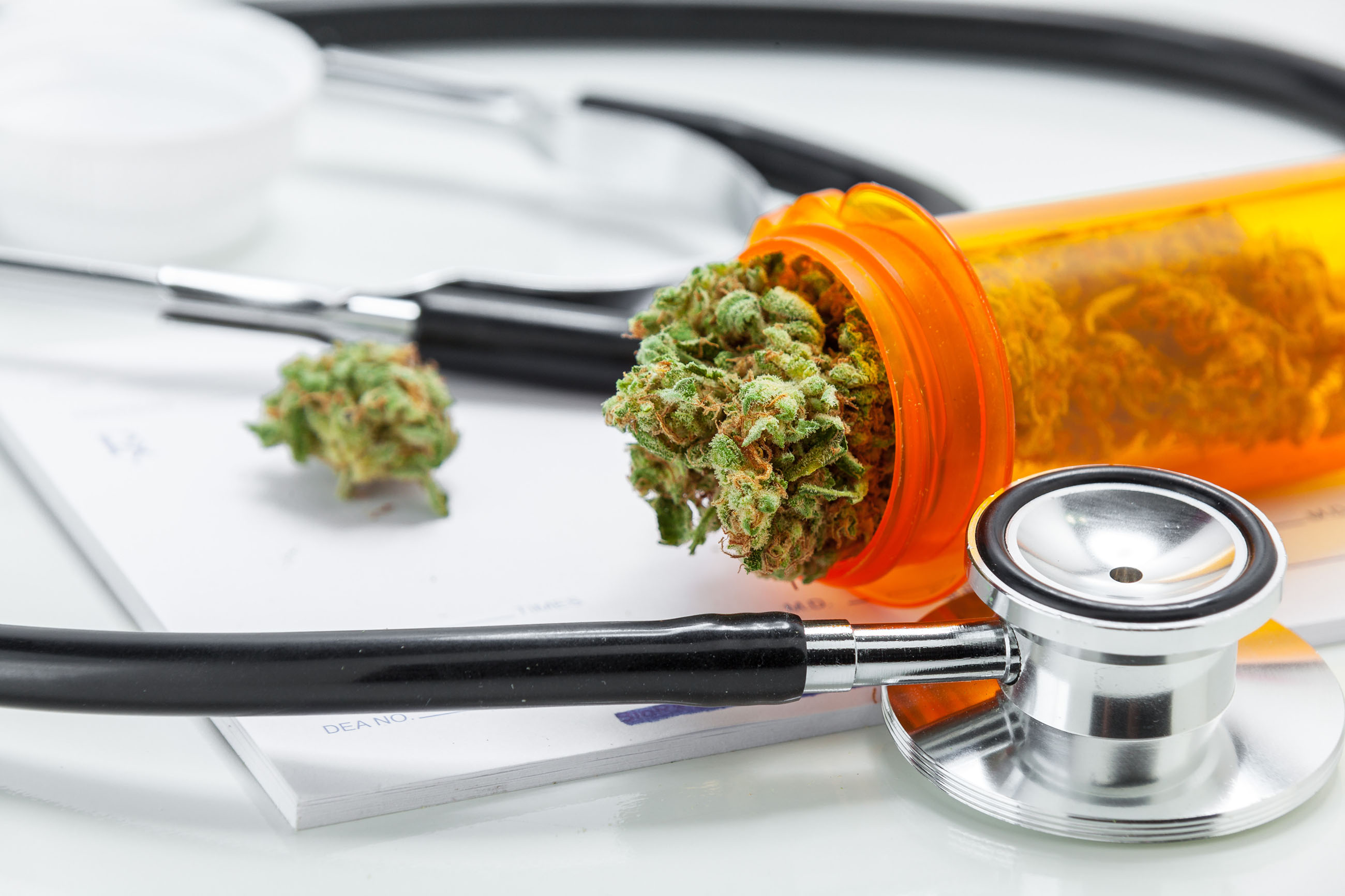
Today, the therapeutic applications of cannabis in medicine are no longer doubted, the use of cannabinoids, the active compounds present in the cannabis plant, has been shown to be effective in the treatment of multiple diseases and disorders.
Despite the scarcity of scientific studies on the effects of medicinal cannabis in the treatment of rosacea, there is research on cannabis as a treatment for other inflammatory skin diseases that present similar symptoms, in addition to anecdotal evidence collected from patients who use it to treat rosacea.
From the available data, we will analyze why cannabis has great potential for reducing and controlling rosacea symptoms. It has been shown that people suffering from this illness can find relief in the administration of medicinal cannabis to treat both their physical and psychological symptoms.
With regard to physical symptoms, the high antioxidant content of cannabis and its potent anti-inflammatory properties have proven useful in reducing redness and facial inflammation.
In a study conducted by the University of Bonn, Germany, in 2013, it was discovered that the topical application of THC helped reduce the symptoms of inflammation caused by allergies. For researchers, this is confirmation of the “important implications for the development of future strategies that use cannabinoids in the treatment of inflammatory skin diseases” such as rosacea.
In another study published in 2014 on acne vulgaris and Cannabidiol (CBD), it was concluded that “due to its combined lipostatic, antiproliferative and anti-inflammatory effects, CBD has potential as a promising therapeutic agent for the treatment of acne vulgaris”. Starting from the basis that the endocannabinoid system (SEC) regulates multiple physiological processes, including skin cell growth and differentiation, the research team analyzed the effects of CBD, the main non-psychoactive phytocannabinoid of cannabis, on the sebaceous gland.
The best way to treat these symptoms, once the outbreak of rosacea has occurred, would be the topical application of cannabis-based creams or ointments containing cannabinoids as active ingredients. Moreover, the oral administration of CBD oil in any of its formats could be beneficial.
Another option that can help control the outbreaks and symptoms of rosacea is the incorporation of hemp-based food in our diet. Hemp seed oil is known for its many health benefits and hemp seeds are considered a superfood for their nutritional benefits. They are a great source of polyunsaturated fatty acids, such as omega 6 and omega 3, which improve blood circulation and protect against aging, as well as being fundamental for the modulation of the immune system.
They also contain metabolites such as gamma linoleic acid (GLA), stearidonic acid and oleic acid, which are very important in the treatment of problems related to inflammation such as rosacea and eczema. Similarly, because of their high antioxidant content, such as vitamin E, they soften the skin, reduce inflammation and dryness.
A study published in 2005 demonstrated the effectiveness of hemp seed oil when administered to patients suffering from atopic dermatitis. Due to the presence of polyunsaturated fatty acids (PUFAs), its use gradually improved skin condition by reducing the itching and dryness.
Where Do I Go With This Face?
As mentioned above, rosacea is a chronic disease that can significantly affect quality of life because of its social and psychological effects. It may greatly impact physical appearance, negatively influencing the self-esteem and self-confidence of patients.
Data from various studies and surveys indicate that approximately 65% of patients suffering from rosacea also experience depression. More than 90% said that their condition had caused them to lose self-confidence and self-esteem, and about 41% acknowledged having avoided public contact both at work, by not showing up, and emotionally, by cancelling social and family commitments.
Without a doubt, in addition to the relief it provides with physical symptoms, cannabis can also help with the psychological negative effects of rosacea. Much research has been done on the subject, and many patients find cannabis useful to combat depression and reduce anxiety as well as emotional and mental stress.
By reducing these mental side effects, the frequency of rosacea outbreaks could be prevented and the way we feel changed positively, which can also have a good and visible impact on our skin health. Whether it is for personal taste or medical need, patients may choose one of the different methods of administration or consumption of medicinal cannabis. Of course, from a medical point of view, it is more advisable to vaporize it than to smoke it, but there is also the possibility of ingesting it.
Cannabis to Treat Other Factors that Make Rosacea Worse
In addition to the aforementioned hereditary factors, such as having a vasoreactive skin, or personal ones, such as age, there are other elements that in certain occasions trigger or worsen rosacea symptoms.
Some of the factors of external origin that can worsen the problem are: exposure to UV rays from the sun, pollution, cold, wind; sudden changes in temperature; hot baths; strenuous exercise; some hot and spicy foods and beverages, and alcohol consumption. Cannabis can also help us deal with these factors. For example, the topical application of hemp seed oil protects us against dehydration and ultraviolet rays. On the other hand, we can strengthen our immune system and our health in general by having a healthy diet that includes hemp-based products. At the recreational level, an alternative to alcoholic beverages can be found in cannabis beverages.
Finally, we must bear in mind that the experience with cannabis is very subjective on a physical and mental level; the reaction we each have to the same variety or dose can be very different. The endocannabinoid system and the genetics of each individual determine his or her particular response to cannabis. Not everything feels the same to everyone. For this reason, before starting a cannabis treatment, it is always advisable to consult with a medical professional who is knowledgeable about the therapeutic benefits of this plant, and who can recommend which is the best option for each patient, taking into account one’s medical history.
Are you one of the many people in the world suffering from rosacea? Have you ever used cannabis, cannabis oil or hemp products to treat its symptoms? Tell us in the comments below!
- Disclaimer:This article is not a substitute for professional medical advice, diagnosis, or treatment. Always consult with your doctor or other licensed medical professional. Do not delay seeking medical advice or disregard medical advice due to something you have read on this website.







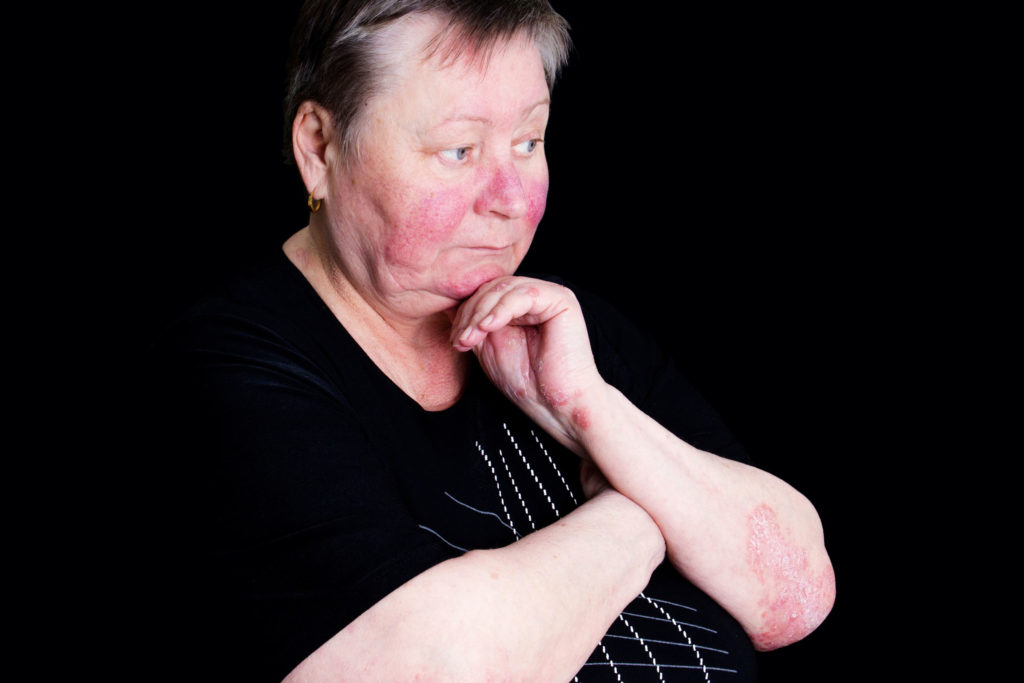
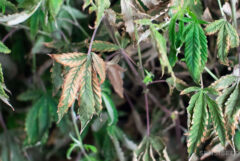
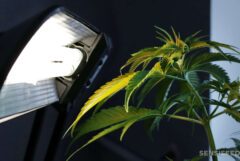
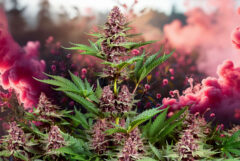
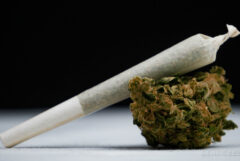
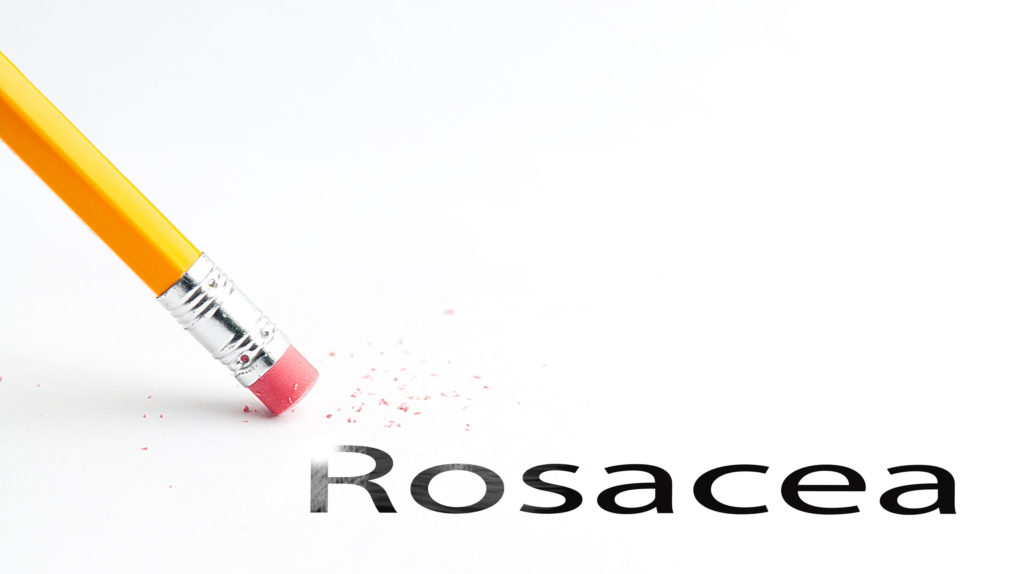

I am on Medicinal Cannabis Oil and I think it’s only happened since I have been on it that I get the worst Rosacea of an afternoon for some reason. My cheeks come up like they have been burnt and I am hoping you might have a suggestion to help please?
Kind Regards
Janine
Hi Janine,
Thank you for your comment. We are sorry to hear about your situation. As Sensi Seeds is not a medical agency or practitioner, we cannot give any kind of medical advice other than to consult your registered healthcare professional.
You may also find it helpful to contact a support group for medicinal cannabis patients. In the UK there is the United Patients Alliance, and throughout much of the rest of the world there is NORML, who should be able to put you in touch with a group in your area (search United Patients Alliance or NORML followed by your area name).
With best wishes,
Scarlet